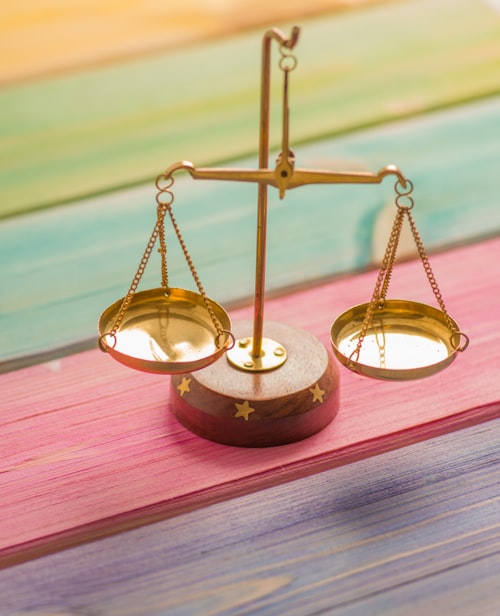Introduction
Email has become an integral part of our personal and professional lives, serving as a primary communication channel. With the constant influx of messages, it's important to strike a balance between staying responsive and avoiding the trap of constant email checking. In this comprehensive guide, we will explore how often you should check your emails, examine expert opinions, and provide practical strategies to manage your inbox effectively.
The Myth of Constant Email Monitoring
In today's fast-paced digital world, the myth persists that constant email monitoring leads to increased productivity and responsiveness. However, research and productivity experts argue otherwise. Let's debunk this myth and discover the optimal frequency for checking your emails.
Assessing Your Role and Responsibilities
One crucial factor in determining how often you should check your emails is the nature of your role and responsibilities. Different professions and job positions require varying levels of email responsiveness. Here are a few considerations:
1. High-Priority Roles:
If you hold a high-priority role where immediate responses are critical, such as customer support or emergency services, checking your emails more frequently may be necessary.
2. Collaborative Roles:
If your work heavily relies on email communication for collaboration with team members or clients, checking emails at regular intervals throughout the day can ensure effective coordination.
3. Administrative Roles:
Administrative roles that involve managing schedules, appointments, or important communications may require more frequent email checks to stay organized and maintain efficiency.
Expert Opinions on Email Checking Frequency
Productivity experts and professionals have varying opinions on the ideal frequency for checking emails. While there is no one-size-fits-all answer, here are some insights:
1. Batch Processing:
Some productivity experts recommend batch processing emails at specific intervals rather than constantly checking throughout the day. This approach allows you to focus on other tasks without constant interruptions.
2. Scheduled Email Checks:
Setting specific times during the day to check and respond to emails can help create a routine and reduce the urge to constantly monitor your inbox. For example, checking emails in the morning, after lunch, and before the end of the workday.
3. Urgency-Based Approach:
Adopting an urgency-based approach involves prioritizing emails based on their level of importance and time sensitivity. It allows you to allocate specific time slots for responding to urgent messages while addressing non-urgent ones at designated intervals.
4. Personal Work Style:
Ultimately, your personal work style and preferences play a significant role in determining how often you should check your emails. Reflect on your energy levels, concentration span, and productivity patterns to find a balance that suits you best.
Strategies for Effective Email Management
Regardless of how often you choose to check your emails, implementing effective email management strategies can greatly enhance your productivity and reduce inbox overload. Here are some practical tips:
<
h3>1. Set Clear Boundaries:
Establish clear boundaries by communicating your email availability and response times to colleagues, clients, and stakeholders. This helps manage expectations and minimizes the pressure to be constantly available.
2. Use Email Filters and Labels:
Organize your inbox by setting up filters and labels to automatically categorize incoming messages. This allows you to prioritize and address important emails promptly while relegating less critical ones for later review.
3. Unsubscribe and Declutter:
Regularly review your email subscriptions and unsubscribe from newsletters or notifications that are no longer relevant. Decluttering your inbox reduces distractions and ensures you receive only essential messages.
4. Leverage Productivity Tools:
Utilize productivity tools and email management software to automate repetitive tasks, schedule emails, and create email templates. These tools can streamline your workflow and save valuable time.
5. Practice Mindful Email Checking:
Instead of mindlessly checking your emails, practice mindful email checking. Set specific objectives for each email session, such as responding to urgent messages or completing a specific task, to maintain focus and avoid getting overwhelmed.
Frequently Asked Questions (FAQs)
Q1: Should I check my emails first thing in the morning?
A1: While some recommend avoiding email checking as the first task of the day to maintain focus, it ultimately depends on your work style and priorities. Evaluate whether responding to urgent messages or addressing critical tasks takes precedence over other activities.
Q2: How often should I check my personal emails?
A2: The frequency of checking personal emails depends on individual preferences and needs. It may range from multiple times a day to a few times a week, based on personal communication requirements and commitments.
Q3: Can email checking become an addiction?
A3: Yes, constantly checking emails can develop into a habit that negatively impacts productivity and work-life balance. It's important to set boundaries, establish email-free periods, and practice self-discipline to avoid falling into the trap of excessive email monitoring.
Q4: What if I miss important emails by checking less frequently?
A4: Implementing an effective email management system, such as filtering and prioritizing emails, can help ensure that important messages are not overlooked. Communicating your response times to colleagues and stakeholders also helps manage expectations.
Q5: How can I reduce email-related stress?
A5: Implementing strategies like email filters, setting boundaries, and practicing mindful email checking can significantly reduce email-related stress. Regular breaks from email and engaging in stress-reducing activities outside of work also contribute to a healthier relationship with email.
Conclusion
While there is no definitive answer to how often you should check your emails, finding a balance between responsiveness and productivity is key. Assess your role, consider expert opinions, and align your email checking habits with your personal work style. By implementing effective email management strategies and setting clear boundaries, you can maintain a healthy inbox and enhance your overall productivity.



